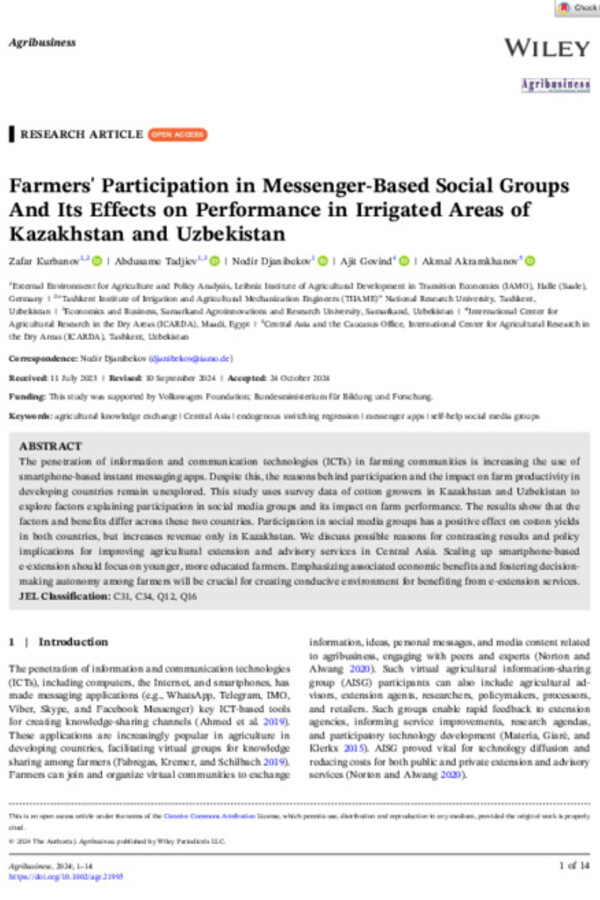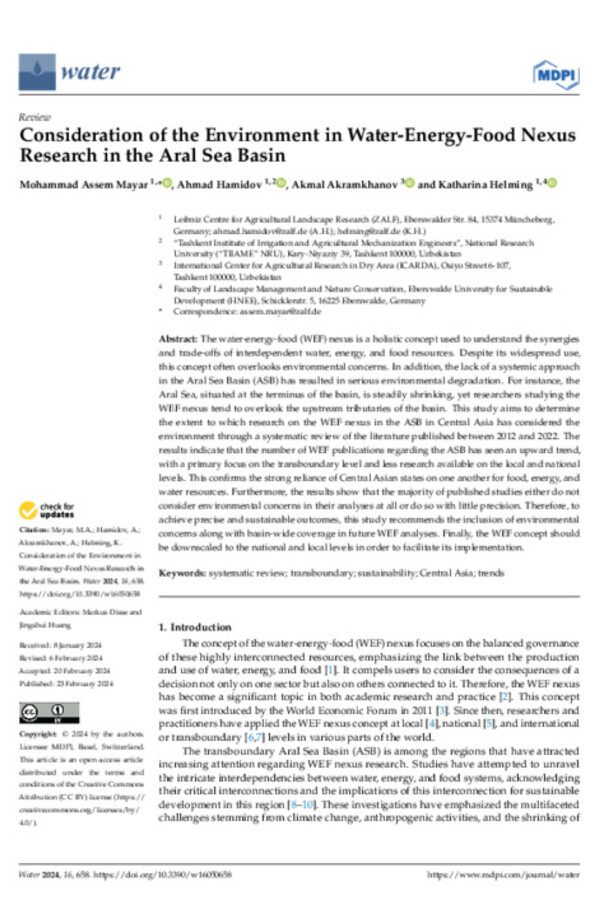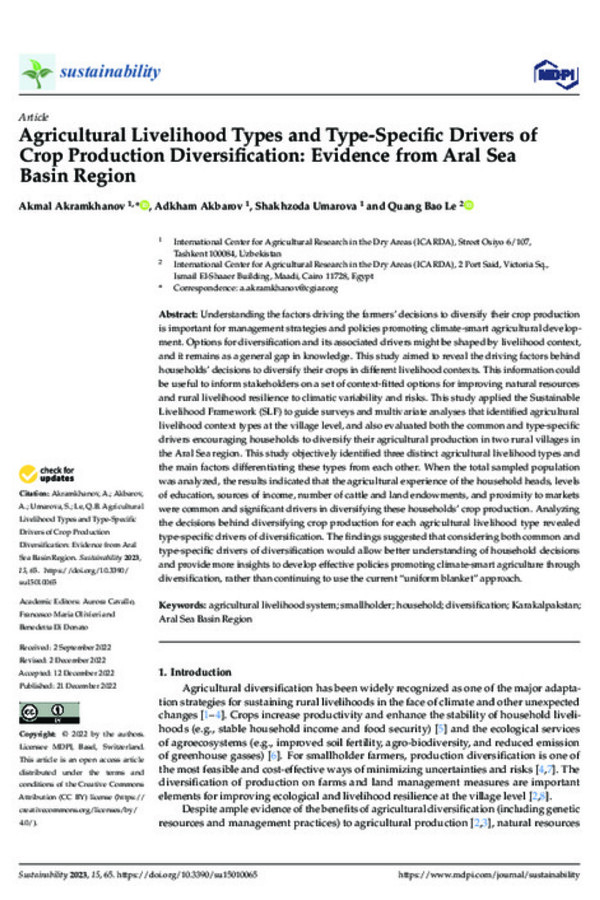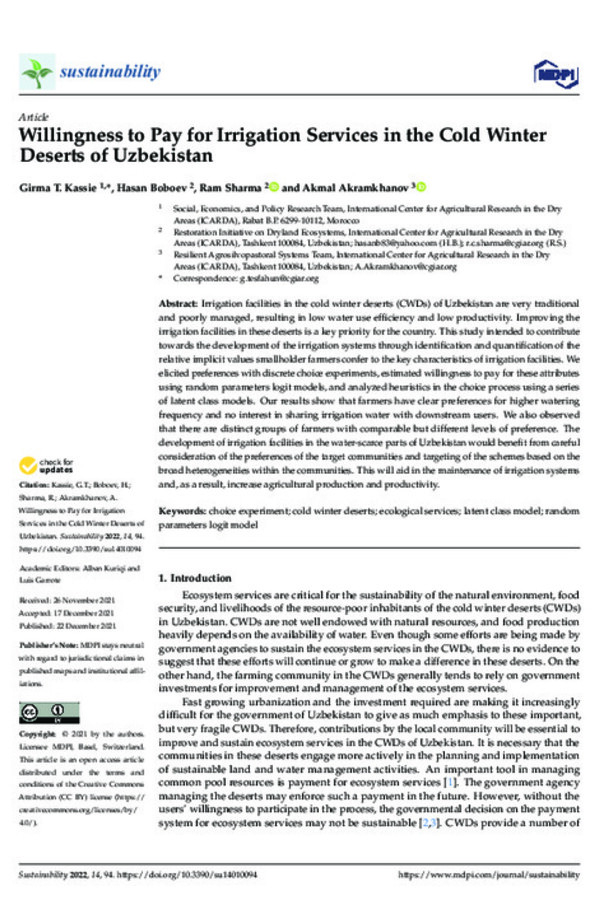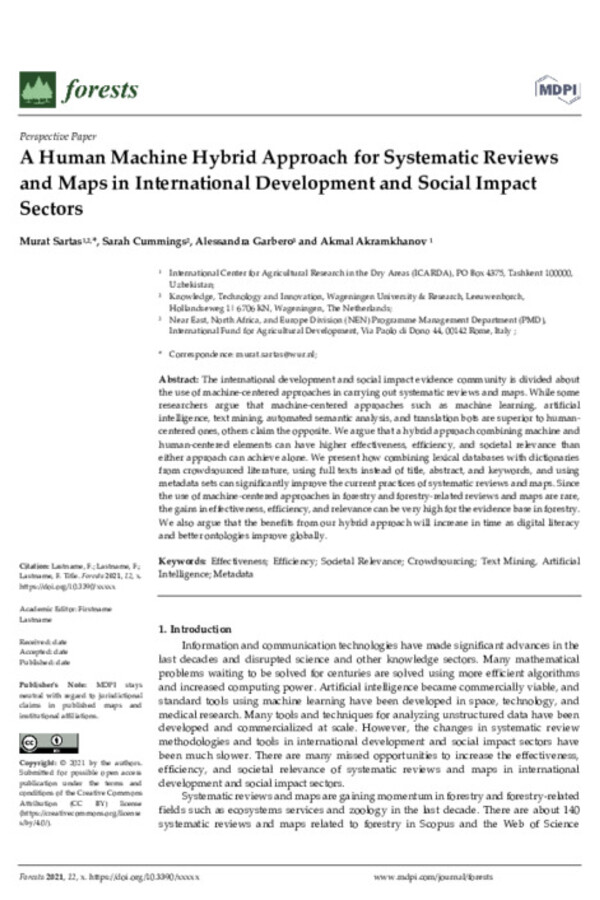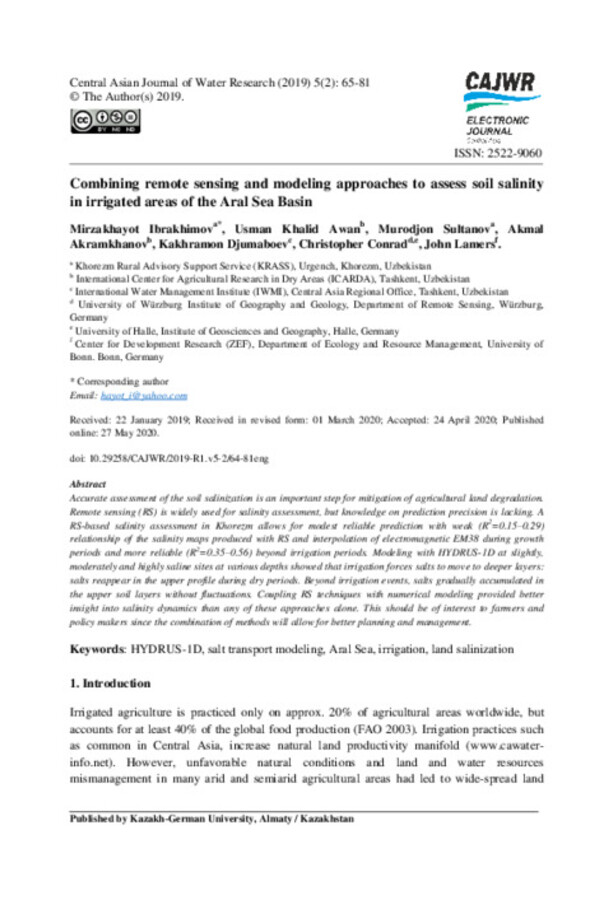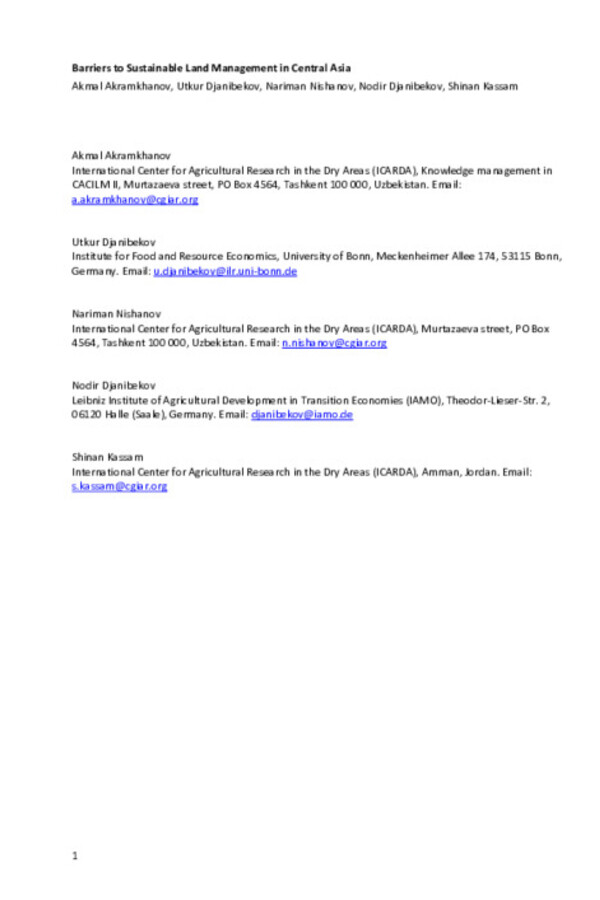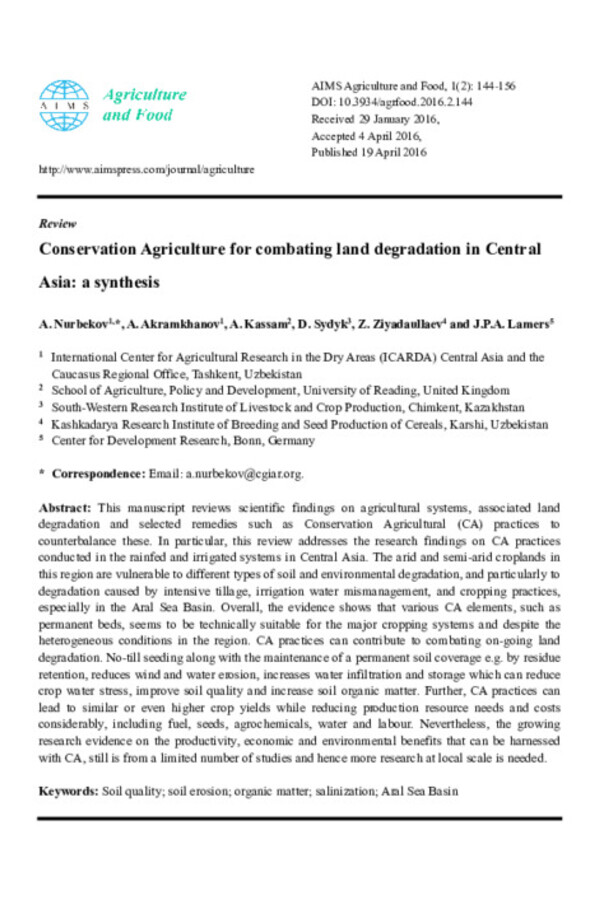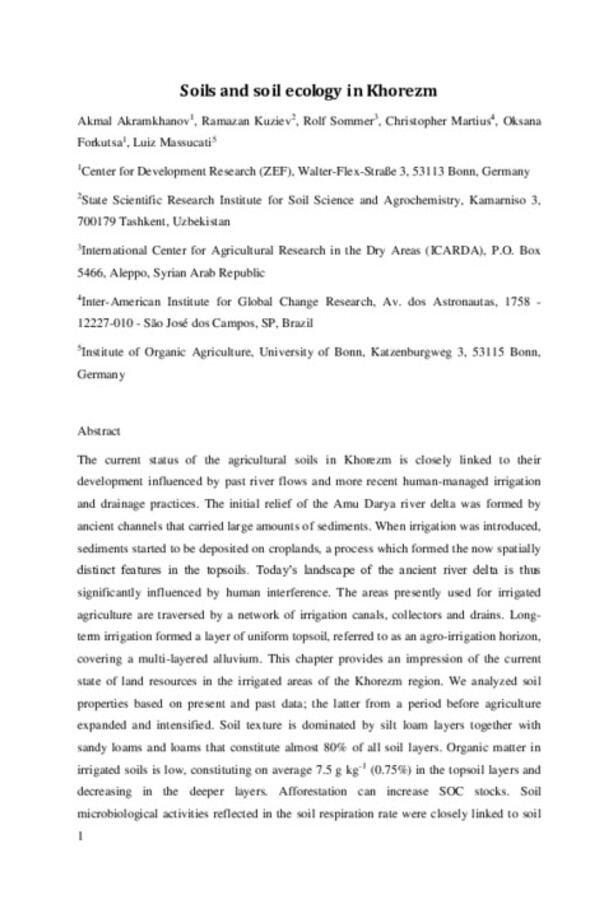
Akmal Akramkhanov
Akmal Akramkhanov is a senior scientist specializing in sustainable land management, with over 20 years of experience across Central Asia, the Caucasus, and countries including Moldova, Morocco, Sudan, and Egypt. His work focuses on the intersection of land degradation, climate resilience, and sustainable agriculture, with a strong emphasis on turning scientific knowledge into operational and policy-relevant solutions.
His technical expertise includes soil salinity monitoring, GIS and spatial analysis, conservation agriculture, and sand and dust storm (SDS) mitigation. Akmal has led and contributed to initiatives that support climate adaptation, natural resource management, and emergency response, particularly in arid and semi-arid agroecosystems.
At ICARDA, Akmal drives strategic engagement with national partners, coordinates donor-supported programs, and contributes to the design and implementation of regional platforms and decision-support tools. He is recognized for his ability to link science with real-world application, delivering impact through clear communication, cross-disciplinary collaboration, and capacity development.


